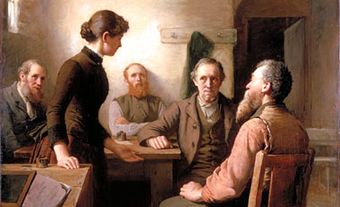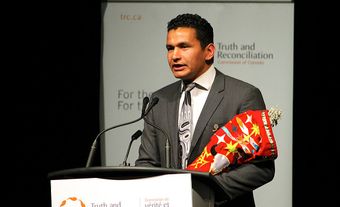Tory, Henry Marshall
Henry Marshall Tory, educator (b at Port Shoreham, NS 11 Jan 1864; d at Ottawa 6 Feb 1947). Awarded one of McGill's earliest doctoral degrees in science, Tory did not himself become a researcher but was the principal founder of several universities - UBC, U of A and Carleton - and of the ALBERTA RESEARCH COUNCIL and the National Research Council Laboratories.
Son of a Methodist minister, Tory trained for the ministry but was offered a teaching post at McGill after graduation. In 1905, when professor of mathematics, he was sent to BC to advise on the future of McGill's affiliated Vancouver and Victoria colleges, leading to the 1908 UBC Act. His tour of the West led to his appointment in 1908 as founding president of U of A, which he built into a lively institution, with both services (eg, a travelling rural library and radio station) and high standards of teaching and research. In 1917 he organized the KHAKI UNIVERSITY for Canadian soldiers in England, and in 1919 was instrumental, with J.L. CÔTÉ, in creating the organization that in 1921 became the Alberta Research Council. Appointed in 1923 to the NATIONAL RESEARCH COUNCIL, Tory became its chairman within 6 months, apparently because no other member had faith in its political future. His first priority was persuading the government to build the national laboratories planned in 1919 but vetoed in 1921 through procedural confusion in Parliament. He succeeded in 1927 and the following year moved to Ottawa as the NRC's first full-time president. Tory was then 64 years old.
Depression conditions frustrated Tory's ambition of making the NRC as vigorous an influence in Canada as the university had been in Alberta, but the laboratories were completed and staffed between 1928 and 1932 with about 50 scientists, the essential nucleus for the NRC's expansion in WWII. Though embittered by the manner of his 1935 retirement, Tory regarded the NRC Laboratories as his supreme achievement. At age 77 he headed the committee that opened Carleton College in 1942, serving as unpaid president and lecturer until his death. Throughout his life, Tory's main characteristic was enthusiasm. The promotion of science was his central theme, but his interests ranged from the League of Nations to the settlement of the Canadian Prairies. The most famous educator of his day, he was a controversial and proud man: but he had much to be proud of.

 Share on Facebook
Share on Facebook Share on X
Share on X Share by Email
Share by Email Share on Google Classroom
Share on Google Classroom


